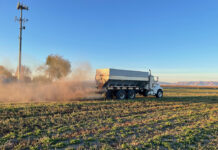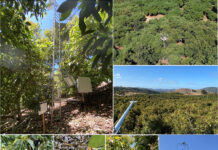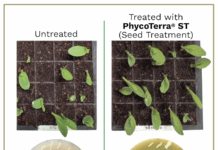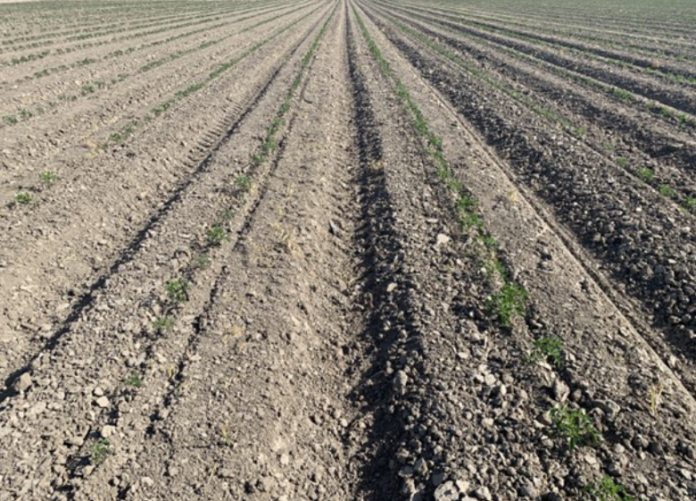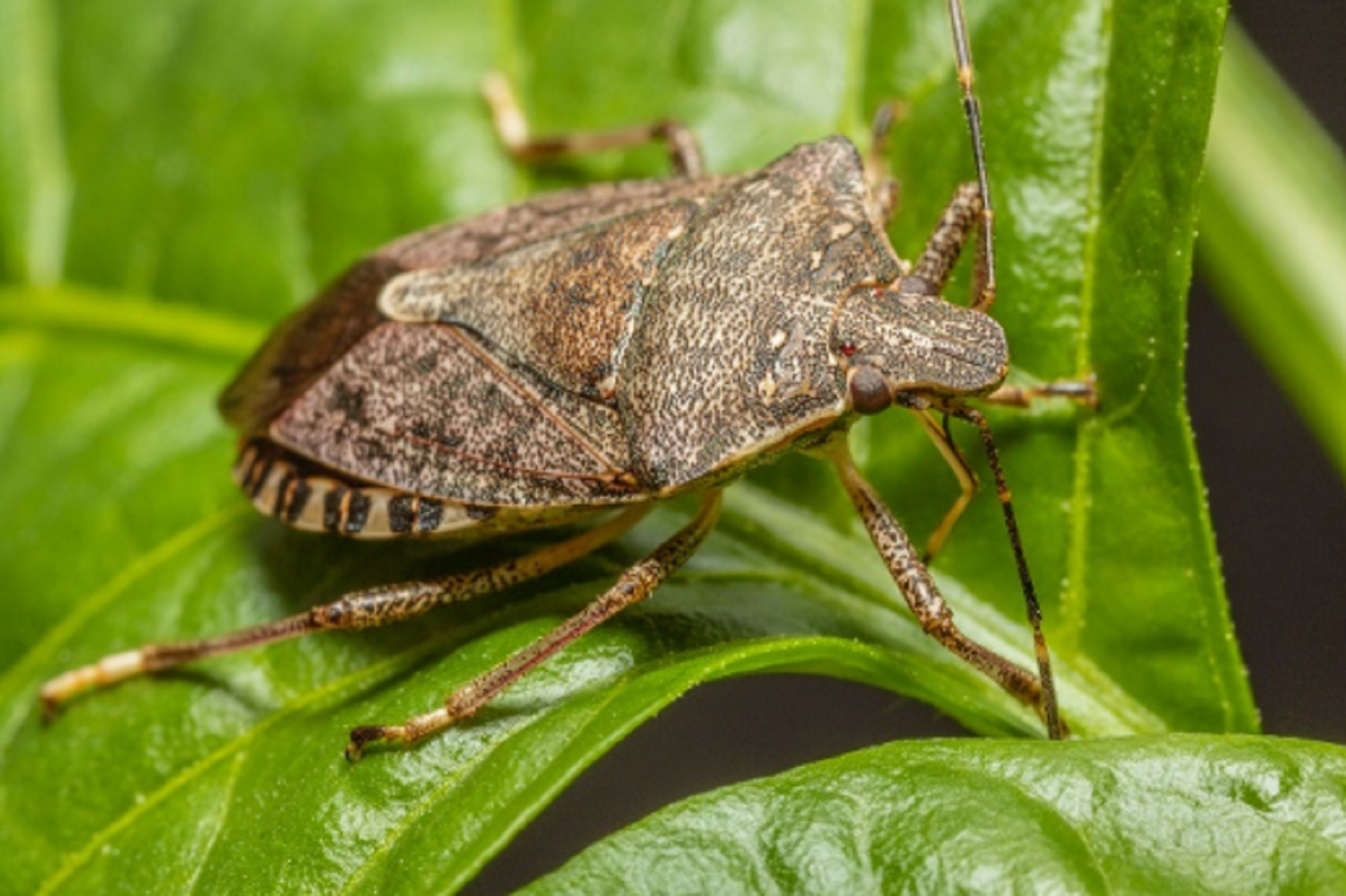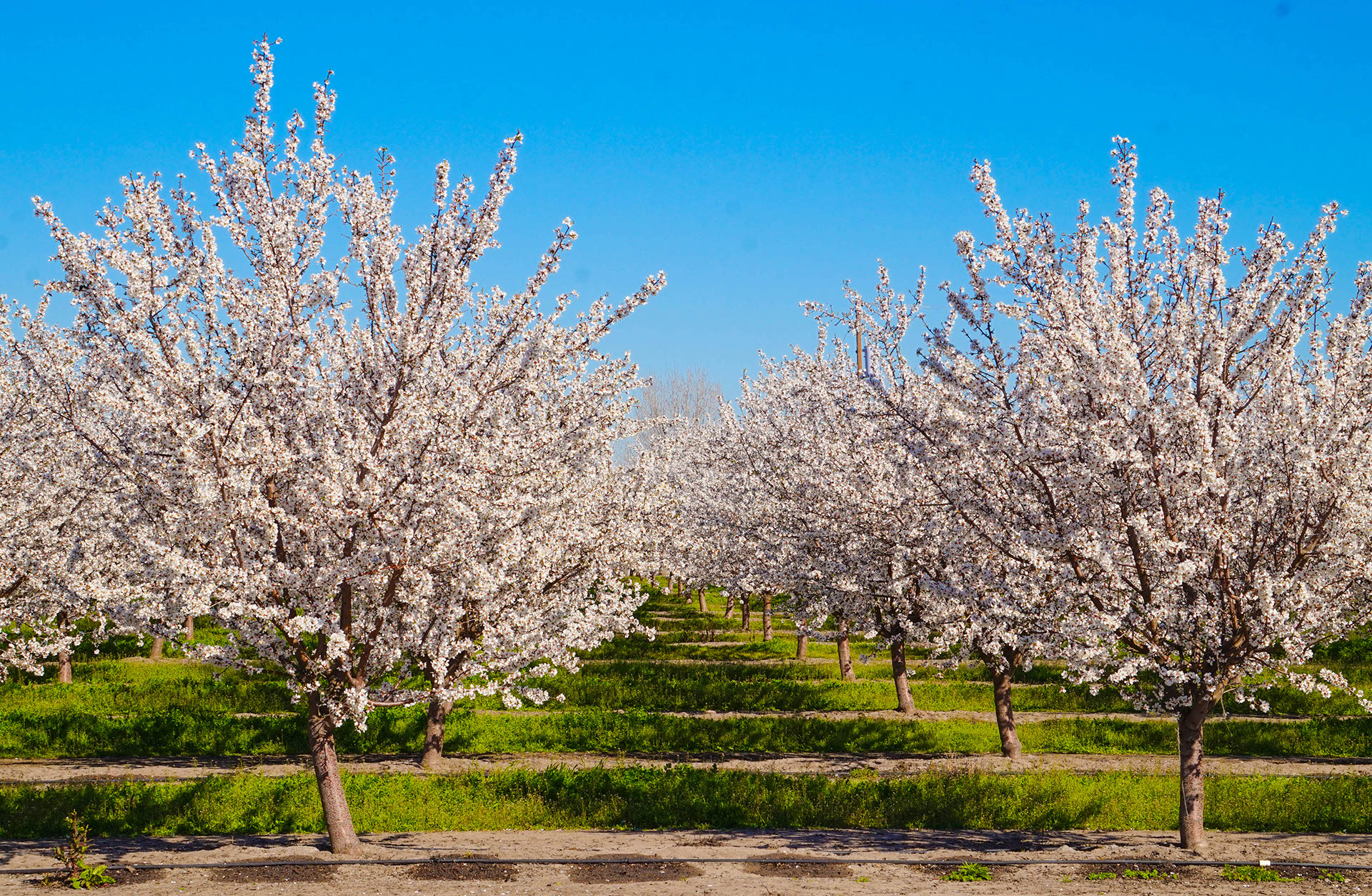As the demand for sustainable and eco-friendly agricultural practices grows, biostimulant products have emerged as key players for enhancing crop productivity while minimizing environmental impact. According to USDA 2019 report, A plant biostimulant is a substance, microorganism, or mixtures, that, when applied to seeds, plants, the rhizosphere, soil or other growth media, act to support a plant’s natural nutrition processes independently of the biostimulant’s nutrient content. Plant biostimulants contain an array of substances and/or microorganisms that stimulate growth of plants through diverse mechanisms such as an efficient absorption of nutrients by plant roots or their use in the plant tissue. This efficiency results in stress mitigation, improved yields, and reduces the need for excessive fertilizer application. As California faces challenges related to water scarcity and degrading soil health, biostimulants offer a sustainable solution by maximizing the use of available resources.
California’s diverse climate expose crops to various environmental stresses, such as drought, heat, and salinity. Biostimulants help plants build resistance to these stressors, ensuring better crop performance even in challenging conditions. This is particularly crucial in a state where water resources are often limited. Biostimulants pro-mote a healthy soil microbiome, fostering beneficial microbial activity. A balanced soil microbiome contributes to improved nutrient cycling, disease resistance, and overall soil structure. This is essential for sustaining the long-term productivity of California’s agricultural lands. With increasing awareness of the environmental impact of conventional farming practices, there is a growing interest in sustainable alternatives. Biostimulants align with the principles of sustainable agriculture by minimizing the use of synthetic chemicals and promoting a more ecological approach to crop management.
AgroPlantae has been producing and researching biostimulants for the last 15 years, with tailored applications for diverse crops and weather conditions. Among our products, EarthMAX is a biostimulant derived from amino acids, acts as a rapid-action nutrient synergist. This soil-applied biostimulant reinvigorates vegetative development, functioning as a catalyst for nutrient uptake and delivering an energy boost during environmental or physiological stress. EarthMAX elevates overall crop quality by offering specialized plant extracts for immediate uptake and benefits. By enhancing crop resilience to stress, EarthMAX optimizes fruit retention, quality, and yield , even at a low application rate of 1-2 pints per acre. In this article we focus on EarthMAX research trials conducted in California in collaboration with tomato growers. EarthMAX demonstrated a substantial increase in marketable yield, providing growers with a high return on investment.
California produces about one third of world’s and 95% of nation’s processing tomatoes. California tomatoes, characterized by their superior quality and prolific production, are subjected to various environmental stresses and nutrient limitations that can impact overall crop yield. To address these challenges, the utilization of biostimulants has garnered attention. Biostimulants has been proven to exert a beneficial influence on plant growth and development by promoting better nutrient uptake, plant growth and higher fruit development.
AgroPlantae has conducted a two-year trial on Processing Tomato. A first trial was conducted in Stockton, CA, in 2022, and involved three applications of EarthMAX at a rate of 1 pint/acre at key growth stages: 7-10 days post-transplant, 50% bloom, and fruit enlargement. Post-application, we assessed yield and quality parameters, revealing a remarkable 16% in-crease in marketable yield. This boost in marketable yield is reflected in the reduction of defects caused by mold, irregular fruit size, sunburn, and other factors. Treated tomatoes exhibited a 1.2% lower mold, 3% lower defects, a 1.2 unit increase in average tomato size, and a noteworthy 0.2 Brix content elevation than the grower standard product. The return on investment was 7319%.
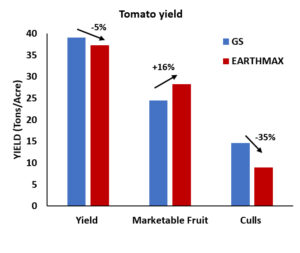
A second trial was conducted in Riverdale, CA, in 2023, and involved two applications of EarthMAX at a rate of 1 pint/acre during crucial growth stages (7-10 days post-transplant and 50% bloom). The trial showcased impressive results: EarthMAX delivered a remarkable 13% increase in marketable yield, evident in the reduction of defects caused by mold, irregular fruit size, sunburn, and more. This translated to an ROI of $800+ per acre based on the 2023 tomato market price of $138/ton.
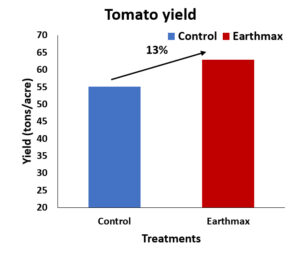
Comparing the EarthMAX treated area to the grower standard product, there was a notable enhancement with 7 ton/acre more yield, 0.285 % less green, 0.6 unit increase in size, and a 0.4 Brix content boost. In the same 2023 processing tomato trial in Riverdale, CA, processing tomatoes experienced a substantial growth response, plant height and establishment improvement. EarthMAX, applied 7 days post-transplant, outperformed GS, which only received the standard fertility program. Ten days after the initial application and continuing through to yield, EarthMAX-treated plants displayed greater height and vigor compared to GS treatment. The return on investment was 3625%.
In conclusion, EarthMAX by AgroPlantae showed excellent results in California tomato trials, elevating marketable yield and enhancing fruit quality. As a trusted and efficient biostimulant in AgroPlantae’s product line, EarthMAX addresses the challenges of diverse agricultural conditions, providing growers with a reliable solution to optimize crop performance in California’s vital tomato industry.
Visit AGROPLANTAE.COM or give us a call (559) 498-0388 to learn more


